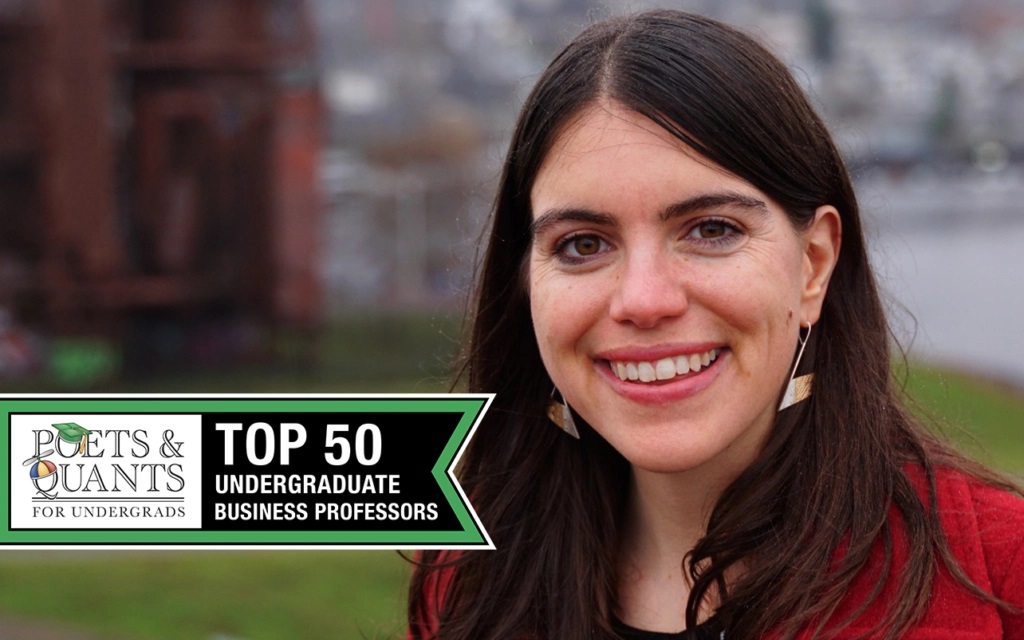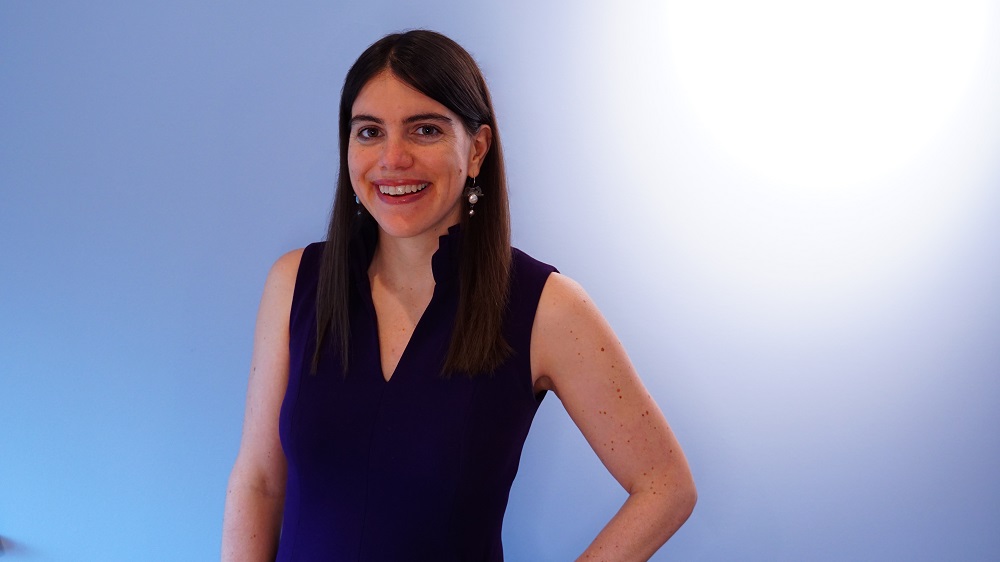Alicia DeSantola named one of Poets & Quants’ Top 50 Undergraduate Business Professors
 Alicia DeSantola, an assistant professor of management and organization at the University of Washington Foster School of Business, has been named one of the world’s “Top 50 Undergraduate Business Professors” by the influential business school news site Poets & Quants.
Alicia DeSantola, an assistant professor of management and organization at the University of Washington Foster School of Business, has been named one of the world’s “Top 50 Undergraduate Business Professors” by the influential business school news site Poets & Quants.
DeSantola joined the Foster School in 2019 after earning a PhD in organizational behavior from Harvard University. She has been an immediate force in research. Early work identifying the drivers of new venture growth earned her the Industry Studies Association Dissertation Award and landed her as a finalist for the Heizer Dissertation Award in New Enterprise Development.
Subsequent studies in entrepreneurship, organizational transformation, venture capital and technology and innovation strategy having been published in top journals including Organization Science, Administrative Science Quarterly, Academy of Management Annals and Harvard Business Review.
Live cases
But DeSantola’s impact in the classroom may be even greater. She currently teaches Introduction to Entrepreneurship and Entrepreneurial Strategy at Foster.
And students adore her. They refer to her in glowing terms.
To wit: “Professor DeSantola is my greatest entrepreneurial inspiration,” writes student Christina McMillan in nominating her professor. “She recruits accomplished VC/angel investors and high-growth entrepreneurs to share engaging experiences and advice. This offers credible networking, job and funding opportunities due to her connections and willingness to advocate for ambitious students. She empowers students to devise solutions to high-profile, real-time dilemma cases and build teamwork skills to pursue startup ideas. I learned to chase after my goals with supportive people and tools by my side.
“She develops achievers.”
Class as conversation
This is entirely by design. In her classes, DeSantola liberally employs what she calls “live cases,” in which visiting company founders and entrepreneurial leaders present a real-time dilemma faced by their business to the class. Students engage in Q&A and then recommend a course of action for the protagonist. This offers a unique opportunity to assess how to deal with common entrepreneurial constraints such as uncertainty, limited resources and tradeoffs.

Alicia DeSantola engages entrepreneurial students to tackle “live cases,” involving real-world dilemmas presented by business founders.
“I view the classroom as an interactive conversation space where students learn by engaging in a dialogue not just with me, but also with each other and with members of the broader entrepreneurial ecosystem,” DeSantola says. “Our classroom discussions are often quite lively.”
Learn by doing
In her P&Q portrait, DeSantola discusses her reasons for pursuing an academic career, her research, her most admired mentor (a historian), her favorite vacation locales (Kauai and Ireland, which outgreen even the Emerald City) and favorite hobbies (hiking and biking, fostering dogs, testing new recipes).
She describes her ideal business school as one that gets students “engaging in building or developing new products or services as part of their core curricula. I think that all business school students—whether they want to lead a large company or start one of their own—have much to learn from the entrepreneurial mindset, and one of the best ways to develop that mindset is to learn by doing.”
DeSantola professes great affinity for curious students.
“Entrepreneurship students are inherently problem solvers who are interested in identifying and building solutions to challenges in the world around them,” she says. “It’s a joy to get to work with such creative and engaged individuals—the entrepreneurial spirit is essential to tackling some of the most difficult dilemmas faced by the world today.”
Read the full profile at Poets & Quants.
